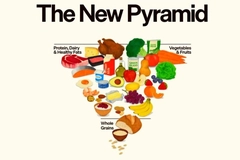Nutrient-rich and plant-based? Research compares dairy alternative mineral content

25 Aug 2022 --- In a US Food and Drug Administration (FDA) funded study, researchers have found that some plant-based milk alternatives can be valuable sources of magnesium, phosphorous, zinc and selenium.
Only the soy- and pea-based beverages outperformed cow’s milk in terms of having higher concentrations of the four essential minerals, with pea-based beverages having levels of phosphorus, zinc, and selenium that were approximately 50% higher.
The researchers note that when evaluating the nutritional value of plant-based milk alternatives, it is essential to consider the differences between different types of alternative milk products and any potential variability within a given plant-based alternative milk type.
The researchers’ findings about vital minerals are ultimately intended to assist customers with making knowledgeable dietary decisions about non-dairy plant-based drink products.
“Plant-based milk alternatives have been growing in popularity, but there’s not a lot known about the mineral content of these products, especially in the US,” says Ben Redan, principal investigator and a Ph.D. research chemist at the FDA.
“Although they can be voluntarily declared, from a regulatory perspective, these minerals are not always required to be on the Nutrition Facts label.”
Nutritional facts needed
Plant-based milk substitutes are suitable for those who choose a dairy-free diet or have allergies or intolerances. However, because some essential minerals are required to be included on the Nutrition Facts label only under certain circumstances, consumers might not know if they are meeting their dietary needs.
 The researchers’ findings aim to assist customers with making knowledgeable dietary decisions about non-dairy plant-based drink products.“Plant-based milk alternatives could be important sources of these micronutrients if consumers are trying to reach recommended dietary allowances. That’s why these data points are important to get out to the public,” details Redan.
The researchers’ findings aim to assist customers with making knowledgeable dietary decisions about non-dairy plant-based drink products.“Plant-based milk alternatives could be important sources of these micronutrients if consumers are trying to reach recommended dietary allowances. That’s why these data points are important to get out to the public,” details Redan.
Researchers have now examined plant-based beverages and discovered that the mineral content varies depending on the brand and kind. They note that soy milk had the highest magnesium levels overall, whereas pea-based beverages had the highest phosphorus, selenium and zinc levels.
Examining the micronutrient profile
The researchers examined several locally accessible plant-based beverages that were marketed under various brand names.
A single base ingredient, such as almond, cashew, coconut, hemp, oat, pea, rice, or soy, was used to make each product. The minerals in a total of 85 samples were quantified using an approach known as inductively coupled-mass spectrometry.
The researchers used statistical analysis to discover that the mineral content differed significantly between brands of the same type of food and between various product types, such as drinks based on soy or almonds.
They discovered that soy drinks had the highest average magnesium concentrations, whereas pea-based drinks had the highest phosphorus, zinc and selenium concentrations.
Catering to consumers with allergies
These products, made from essential ingredients like soy, almonds or oats, offer dairy milk alternatives for those with allergies, intolerances or desire dairy-free diets.
 Plant-based milk substitutes are suitable for those who choose a dairy-free diet or have allergies or intolerances.The nutritional value of specific minerals in each form of the non-dairy option is still mostly unknown, which has ramifications for the health of people who use them as a dairy substitute.
Plant-based milk substitutes are suitable for those who choose a dairy-free diet or have allergies or intolerances.The nutritional value of specific minerals in each form of the non-dairy option is still mostly unknown, which has ramifications for the health of people who use them as a dairy substitute.
As these essential minerals are components of dairy milk and are not required on the Nutrition Facts label, the researchers chose to measure the amount of magnesium, phosphorus, zinc and selenium in plant-based milk alternatives.
Dairy milk is a significant source of these micronutrients in US diets, which the body cannot produce. Because people must instead consume foods and beverages containing these minerals, it is critical to understand how much is provided by various milk alternatives.
Fortification and micronutrient gap
Within the plant-based alternative space, Gadot Biochemical Industries, in its new fortification initiative, incorporated calcium, magnesium and potassium into its plant-based milk offerings. In other dairy alternative moves, SternVitamin developed micronutrient premixes to give the plant-based dairy alternatives category “a fortified boost.”
According to DSM, a micronutrient intake gap in the elderly is affecting their immune function. The company emphasized the significance of a holistic approach to minimize malnutrition.
By Nicole Kerr










